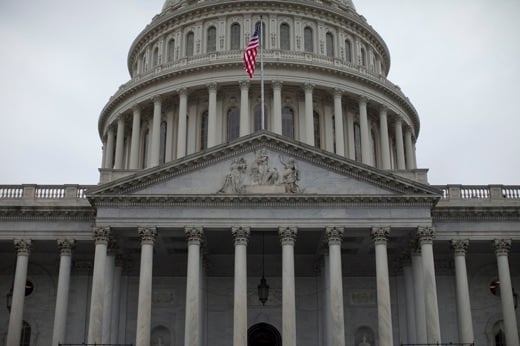But uncertainty remains, as latest deal only runs through Friday; commission still facing budget ax
Congressional negotiators reached a budget agreement just before midnight on Friday that will keep the government open another week while lawmakers considers a proposal that would fund federal operations through September. The modus vivendi prevents a disruption in the services of the Securities and Exchange Commission and other federal agencies.
The SEC was poised to shut down today, halting investment adviser registration and examinations. Instead, the commission's operations will continue, as the House and Senate approved a temporary funding measure early Saturday morning that will run through Friday.
The so-called bridge bill cuts $2 billion out of President Barack Obama's fiscal 2011 budget proposal. Next week, Congress will consider a bill that would cut another $76.5 billion from Mr. Obama's plan.
“We have agreed to an historic amount of cuts for the remainder of this fiscal year, as well as a short-term bridge that will give us time to avoid a shutdown while we get that agreement through both houses and to the president,” House Speaker John Boehner, R-Ohio, and Senate Majority Leader Harry Reid, D-Nev., said in a joint statement Friday night.
The breakthrough appears to offer a resolution to a budget standoff that began last October, when Congress failed to approve a fiscal 2011 spending plan. Since then, the government has been running on a series of temporary continuing resolutions that have forced agencies to operate at fiscal 2010 funding levels.
The spending battle intensified this year, as Republicans took control of the House and made deficit and debt reduction their top priority, spurred in part by Tea Party supporters who were key to their electoral success.
Democrats resisted instituting the full range of Republican cuts, which totaled $100 billion in a bill the House passed in February. They argued that the Republican approach was too Draconian. Indeed, there may be push back next week to the broader spending bill by members of the GOP who don't believe it goes far enough — and by Democrats who say it goes too far.
The SEC is not out of the woods yet, however. Under the original Republican $100-billion bill, the regulator would have endured a $188 million cut from Mr. Obama's budget request – and a $48 million reduction from current funding. It's likely to take a big hit under the latest budget agreement as well.
The Dodd-Frank Act, which was signed into law in July 2010, promised a doubling of the SEC's $1.1 billion budget. But that money is subject to congressional appropriations, which don't look as if they will materialize.
In addition, the next budget battle will revolve around a fiscal 2012 spending plan offered last week by Republicans that would pare back the SEC budget to $906 million, a cut of $501 million from Mr. Obama's fiscal 2012 proposal and a reduction of $212 million from the agency's fiscal 2010 budget.
In a speech Friday to the Society of American Business Editors and Writers Inc., SEC Chairman Mary Schapiro said that the budget cuts are impairing the agency's ability to ensure market integrity – even though the SEC collected $1.5 billion in fees last year, exceeding its $1.1 billion congressional appropriation.
She said that the agency has had to curtail hiring, cancel IT initiatives and take cases to court without expert witnesses.
“Insufficient funding for the SEC means an investor protection effort hobbled at a time when the events of the last decade have proved that effective enforcement of the securities laws is more important than ever,” Ms. Schapiro said.







